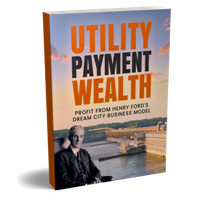
Unfortunately, for most investors, they only consider price. They ignore the value part…the cash flow – or dividend per share – that the business will generate for them as an investor. Perhaps this is why most investors over pay when purchasing shares of a company.
Generally, most stock market investors are not really investors at all. They’re speculators. They only consider price. If a stock’s price is rising they consider it a good investment. If it’s falling, it’s a bad investment.
Then, after a stock’s price falls, speculators think it’s a buy…because of how much less it costs than just several months before. Yet, sometimes, a stock’s price falls…and then it falls more. Nonetheless, for investors that understand value, and what they’ll be paid to own a stock, price is considered within this context.
Following Buffett’s philosophy, investing is about maximizing the price paid for an ongoing piece of a company’s wealth stream. Once locking in the purchase at a favorable price, Buffett doesn’t care much about short-term fluctuations in the stock market. As long as the business continues to grow, and dividends are dispersed, Buffett’s wealth multiplies.
Investments that Churn Out Cash
Buffett is also a long-term investor. “Our favorite holding period is forever,” wrote Buffett in his 1988 letter to shareholders of his company, Berkshire Hathaway Inc. The added benefit of holding shares forever is he doesn’t pay capital gains taxes.
Buffett looks for investments that churn out cash like butter from milk…and then he collects profits forever. Using this strategy, Buffett has a long and incredible track record of success. For nearly 50 years with Buffett as President and CEO, Berkshire Hathaway’s grown book value per share at a compounded annual rate of 19.8 percent.
Last week, if you hadn’t heard, it was revealed that Buffett will be purchasing H.J. Heinz…
“After alluding to a $20 billion deal for nearly a year, Warren Buffett of Berkshire Hathaway aimed his investor’s elephant gun at H.J. Heinz in one of his largest acquisitions ever,” reported MSN Money.
“Berkshire on Thursday announced a deal to buy the iconic ketchup maker for $72.50 a share in cash, in a transaction that values the company at about $28 billion when counting debt.” At that price, Buffett is buying H.J. Heinz when shares are trading near an all-time high. But that’s not all…
“The proposed deal values Heinz at about a 20 percent premium to its Wednesday closing price. Shares in the company, which continues to breach record highs, had risen nearly 17 percent in the 12 months prior to Thursday’s transaction.”
Warren Buffett’s Unique Problem and Solution
To the casual observer, buying shares of a company that are near their all-time high, plus a 20 percent premium, doesn’t seem like an intelligent investment. But when Warren Buffett, the best investor ever, does it, you know the numbers must pencil out to make this a profitable acquisition.
“Heinz has strong, sustainable growth potential based on high-quality standards, continuous innovation, excellent management and great-tasting products,” Buffett said in a statement announcing the deal. No doubt, Heinz is a definitive business. They certainly have the ketchup market cornered. However, Buffett may have had other reasons for purchasing them too…
Warren Buffett has a unique problem that most of us will never know. He’s so wealthy that it’s difficult to spend his money pragmatically. What we mean is he must get rid of his money without making a fool of himself. Surprisingly, this is easier said than done.
Having tons of money can be a curse. It brings to surface a person’s faults and flaws in dramatic and extraordinary ways. For example, no one would’ve known that Steve Wynn was such a klutz if he weren’t so dang rich. Obviously, you have to be rich enough to own a Picasso to experience the disappointment of mistakenly sticking your elbow through the canvas.
In Buffett’s case, he found himself sitting on a $47 billion pile of cash at the precise moment the U.S. Treasury and Federal Reserve want to destroy the dollar. Under such circumstances, $47 billion in cash is an enormous liability. Buffett simply needed a way to get rid of massive amounts of cash in a sensible manner.
Buying Heinz helped Buffett do this. For owning Heinz will better preserve his wealth than owning dollars. Heinz will churn out profits regardless of if the dollar sinks or what unit of measurement the profits are tallied in.
One day, probably not far from now, Buffett’s purchase of H.J. Heinz will prove to be yet another one of his hallmark investment successes. By then the nominal price he paid will seem cheap for the value he received.
Sincerely,
MN Gordon
for Economic Prism
Return from Warren Buffett’s Unique Problem and Solution to Economic Prism




